Washington: Funny thing, reality. Donald Trump promised to be a hairy-chested president, who would shirt front all who stood in his way – but just as the courts have brought to heel on the legality of his migration crackdown, foreign policy experts have him turning somersaults on China, Iran and Israel.
It's not as though former White House novices have not had to skip a step to get into line with the real world. But Trump was so in the face of his opponents, that his volte-faces are historically spectacular.
More World News Videos
Trump weighs revised travel ban
US President Donald Trump says he is considering issuing a new travel ban executive order.
For all his tweeted anger and contempt for the response of the courts to his migration crackdown, the president has all but conceded that his team screwed up, with him now threatening to issue a complete new executive order to block refugees and migrants from some countries. But it would have to be a different order, which is to say that the White House now gets it that the first was a dud.
Trump aides say that all options are on the table, including taking the first, contested travel ban to the Supreme Court. That would be a gamble because in the on-going absence of the ninth member of the court, the current ideological split is 4-4 and were the judges to split in that fashion, the result would be to leave the current court-enforced freeze of the ban in place.
On Friday, Trump alluded to "a brand new order", possibly to be signed as early as Monday, which he figured could achieve the same objectives – but with a more substantial legal framework. With a new order Trump might remove the blemishes from his self-buffed action-man image and it surely would allow him to claim that not even the US Supreme Court could stand in his way.
But when reporters ask Trump to describe a possible re-draft, his answer was too opaque to convey any sense of how it might be different.
"We're going to have very, very strong vetting. I call it extreme vetting; and we're going very strong on security. We are going to have people coming to our country that want to be here for good reason," he said.
Throughout last year's campaign, Trump was aggressive about China and in the wake of his victory he seemed to relish angering Beijing with his threats to walk away from the historic One China policy that underpins the US-China relationship.

But there he was on Thursday, falling in behind the 44-year-old status quo in a phone exchange with President Xi Jinping of China. Trump seemed more buttoned-down than hairy-chested as he pledged to support the deal by which the US recognised Beijing as the single Chinese government and ended diplomatic relations with Taiwan.
Trump appears to be acknowledging realpolitik in other global flashpoints.

Throughout the campaign Trump was absurdly hardline in his support for Israel. He'd shift the US embassy from Tel Aviv to Jerusalem and he'd not buckle in the face of campaigns against Israeli settlements on Palestinian land.
Now the embassy move seems to be on a back burner; and the seemingly unthinkable happened when Trump told Israel this week he did not believe that "going ahead with these settlements is a good thing for peace".

And there's Iran – Candidate Trump was going to shred the nuclear deal struck with Tehran by the US and other powers. But this week, President Trump informed the European Union's top foreign policy official, Federica Mogherini, that Washington would abide by the agreement.
Oops – Japan too. Before heading off for a golfing weekend with Japanese Prime Minister Shinzo Abe, Trump declared the Washington-Tokyo alliance as a "cornerstone of peace and stability". Compare that with the campaign, when he was telling the Japanese to go buy their own nukes if they wanted to defend themselves.

Trump's new secretary of state, Rex Tillerson is credited with teaching the president his geopolitical ABCs on the importance of the One China policy. Likewise, his new defence secretary Jim Mattis is said to have brought Trump up to speed on the usefulness of having the likes of Japan and South Korea as allies.
Some analysts are kind in their interpretation of Trump's multiple pivots.

"Every president discovers that it looks different from the perspective of the Oval Office than it did on the campaign trail," Martin Indyk, the executive vice president of the Brookings Institution, told The New York Times. "The fact that President Trump is proving flexible on some key foreign policy issues suggests he's less ideologically driven than his early moves would imply."
Peter Feaver, who served in George W. Bush's National Security Council, was only slightly less kind.

"He made it all the way to inauguration without doing the deep-dive policy reviews and internal debates that every other successful administration does during the campaign and the transition."

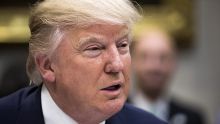
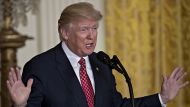

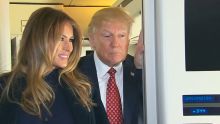

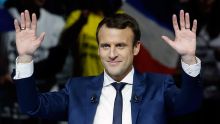

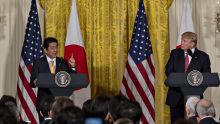







35 comments
New User? Sign up